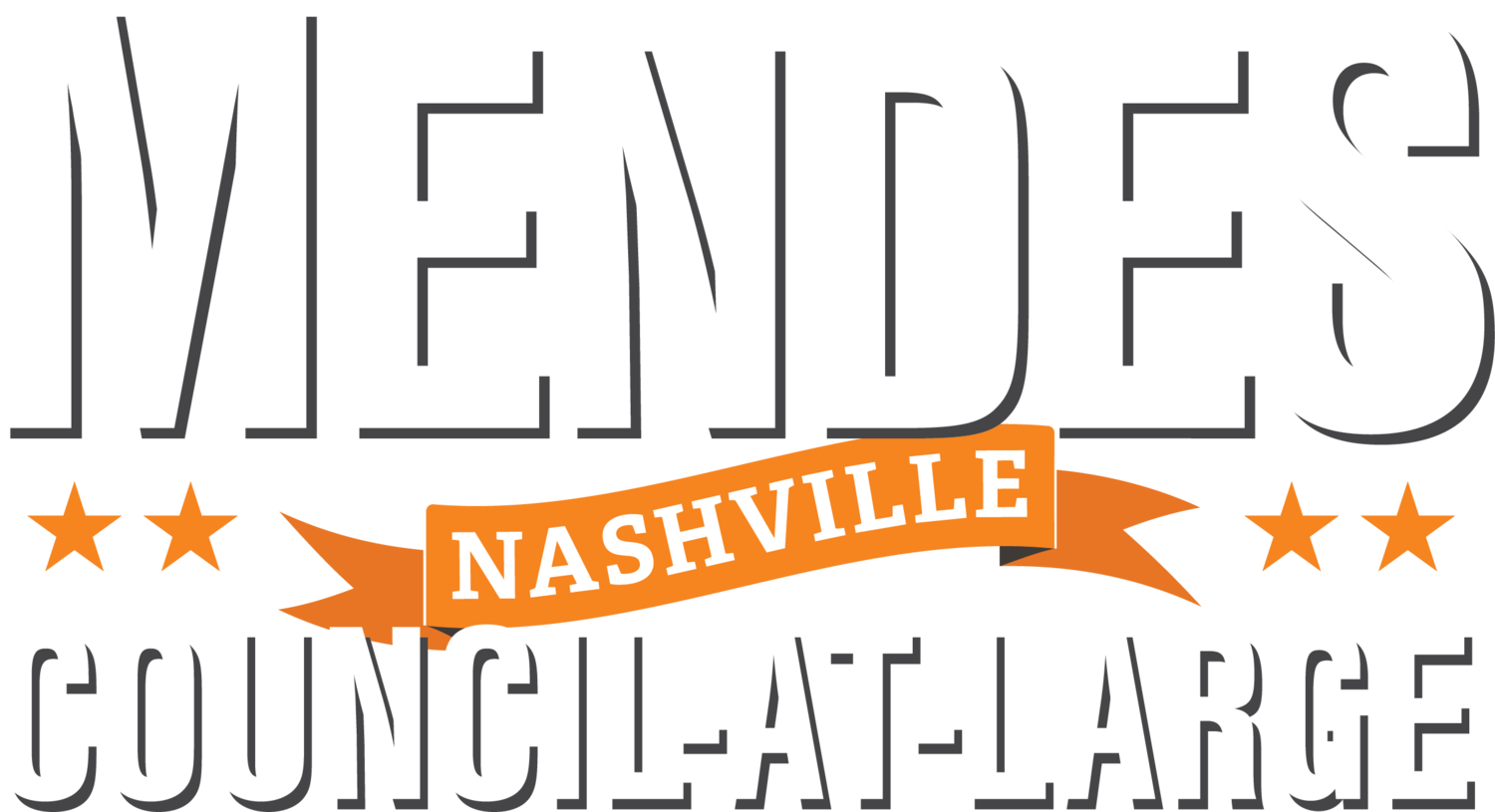New TIF Ordinance
The new TIF ordinance that Councilmember Erica Gilmore and I filed will be considered by the Council for first reading on March 1, 2016. Both MDHA and Metro Legal agreed on the text of the ordinance before it was filed. If passed by the Council, the ordinance would change the ground rules for tax increment financing in Davidson County in three important ways, and also allow MDHA's Envision Cayce plan to proceed as scheduled. The three changes are that Metro will get its tax revenue back more quickly, Metro will have more say in what projects get tax increment financing, and there will be greater transparency to show us how our tax revenues are being used by MDHA.
Metro will get tax revenue back more quicklyThere are three provisions that will help Metro get its property tax revenue back more quickly. First, going forward, for every TIF loan, MDHA will no longer receive the tax increment for the property after the loan is paid. Instead the tax increment will go to Metro after the loan is paid. Second, for any new TIF loans going forward, Metro will be able to retain the portion of property tax revenue that is meant to pay Metro’s own bond debt obligations. I think that this should reduce or eliminate the potential risk that TIF financing could ever erode Metro's ability to service its own debt. Third, if MDHA refinances a TIF loan to reduce its loan payments, the amount of tax increment funds it receives will also decrease – with any excess tax increment going back to Metro.
Metro will have more say in tax increment projects
There are three provisions that will allow Metro to have more control over some types of projects funded by tax increment dollars. First, going forward, tax increment funds may not be used to support projects outside of the specific redevelopment district where the property is located without prior Council approval. Second, going forward, if MDHA is selling land it owns in a redevelopment district, and it got that land from Metro (as opposed to federal funds), absent Council approval, the land sale proceeds must be used in the same redevelopment district or returned to Metro. The third change is technical. For redevelopment districts created after 2006 (i.e., Cayce Place, and Bordeaux), MDHA currently has the power under state law to collect tax increment funds for every parcel of property in the entire district. MDHA has never exercised this power. The ordinance would establish that Metro will only allow tax increment funds to be used by MDHA for properties that actually are being redeveloped (as opposed to all properties in the district regardless of whether they are redeveloped).
We’ll have greater transparencyUnder this ordinance, MDHA will provide annual reporting about each TIF loan, including the current loan balance, the estimated maturity date, the amount paid in the last year on the loan, the parcels whose tax revenues are pledged to support the loan, and the amount of tax increment funds received by MDHA from each of those parcels. The first report would be due 90 days after the ordinance is passed.
The ordinance will approve the Rutledge Hill land sale. In the ordinance, the Council would be specifically approving that MDHA may use the proceeds from the sale of 3 parcels in the Rutledge Hill Redevelopment District as part of the Cayce Place Redevelopment Plan.
During the mayoral and council campaigns last summer, people all over the county wanted to talk about tax increment financing, and whether it has been used fairly, or if it has been a giveaway to developers. My response was always that I didn’t think we, as citizens, had enough visibility into how our property tax dollars have been used for individual economic redevelopment projects. My sense from the start has been that I might not have any complaint about the vast majority of Nashville’s economic redevelopment decisions over the last ten years – but I simply couldn’t tell because there hasn’t been enough readily available information for a reasonably well-informed citizen to make sense of what has been happening. My goals with this ordinance are to help Metro get its tax revenue dollars back sooner, to give voters (through their directly-elected Metro Council representatives) more authority regarding tax increment projects, and to create thorough annual reporting about how these property tax dollars are being spent.
I want to thank the Mayor’s office, Councilmember Gilmore, the more than 20 Councilmembers that have agreed to co-sponsor this ordinance, Jim Harbison from MDHA, and Jim’s leadership team for being willing to not only talk about these issues, but agree on all of these important changes. I am hopeful that the Council supports this ordinance. Mayor's press release (Feb. 24, 2106)
Tennessean (Feb. 25, 2016)
Nashville Business Journal (Feb. 25, 2016)Coverage on WTVF-News Channel 5 (Feb. 24, 2016)
